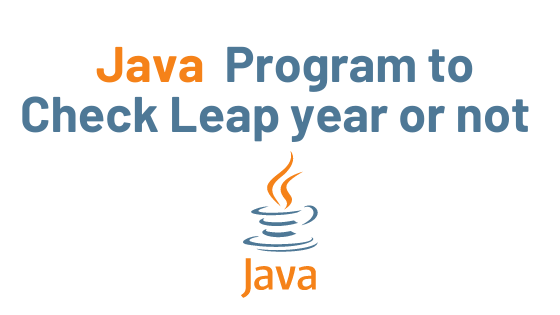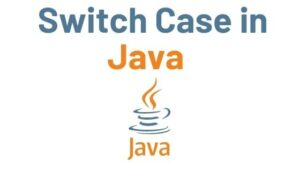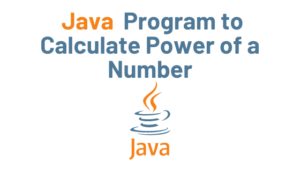In this section, we will write a Java program to determine whether the input year is a leap year or not(To check leap year or not). Before we get into the program, let’s look at how to calculate whether a year is a leap year mathematically:
To find out if a year is a leap year, do the following:
- Proceed to step 2 if the year is evenly divisible by four. Otherwise, proceed to step 5.
- Proceed to step 3 if the year is evenly divisible by 100. Otherwise, proceed to step 4.
- Proceed to step 4 if the year is evenly divisible by 400. Otherwise, proceed to step 5.
- It is a leap year (it has 366 days).
- This is not a leap year (it has 365 days)
Example: Write a program to determine whether the input year is a leap year or not.
We’re using the Scanner class to get user input, and then we’re using if-else statements to write the logic to check the leap year.
public class Demo {
public static void main(String[] args) {
int year;
Scanner scan = new Scanner(System.in);
System.out.println("Enter any Year:");
year = scan.nextInt();
scan.close();
boolean isLeap = false;
if(year % 4 == 0)
{
if( year % 100 == 0)
{
if ( year % 400 == 0)
isLeap = true;
else
isLeap = false;
}
else
isLeap = true;
}
else {
isLeap = false;
}
if(isLeap==true)
System.out.println(year + " is a Leap Year.");
else
System.out.println(year + " is not a Leap Year.");
}
}
Output:
Enter any Year:
2001
2001 is not a Leap Year.
check leap year or not check leap year or not check leap year or not check leap year or not check leap year or not check leap year or not check leap year or not
Annotations in Java are used to provide metadata for your Java code. Because they are metadata, Java annotations do not directly affect the execution of your code, though some types of annotations can. Java annotations were introduced in Java 5 and are still in use today. Annotations in Java are used to provide metadata for your Java code. Because they are metadata, Java annotations do not directly affect the execution of your code, though some types of annotations can. Java annotations were introduced in Java 5 and are still in use today. Annotations in Java are used to provide metadata for your Java code. Because they are metadata, Java annotations do not directly affect the execution of your code, though some types of annotations can. Java annotations were introduced in Java 5 and are still in use today. Annotations in Java are used to provide metadata for your Java code. Because they are metadata, Java annotations do not directly affect the execution of your code, though some types of annotations can. Java annotations were introduced in Java 5 and are still in use today. Annotations in Java are used to provide metadata for your Java code. Because they are metadata, Java annotations do not directly affect the execution of your code, though some types of annotations can. Java annotations were introduced in Java 5 and are still in use today. Annotations in Java are used to provide metadata for your Java code. Because they are metadata, Java annotations do not directly affect the execution of your code, though some types of annotations can. Java annotations were introduced in Java 5 and are still in use today. Annotations in Java are used to provide metadata for your Java code. Because they are metadata, Java annotations do not directly affect the execution of your code, though some types of annotations can. Java annotations were introduced in Java 5 and are still in use today. Annotations in Java are used to provide metadata for your Java code. Because they are metadata, Java annotations do not directly affect the execution of your code, though some types of annotations can. Java annotations were introduced in Java 5 and are still in use today. Annotations in Java are used to provide metadata for your Java code. Because they are metadata, Java annotations do not directly affect the execution of your code, though some types of annotations can. Java annotations were introduced in Java 5 and are still in use today. Annotations in Java are used to provide metadata for your Java code. Because they are metadata, Java annotations do not directly affect the execution of your code, though some types of annotations can. Java annotations were introduced in Java 5 and are still in use today.



